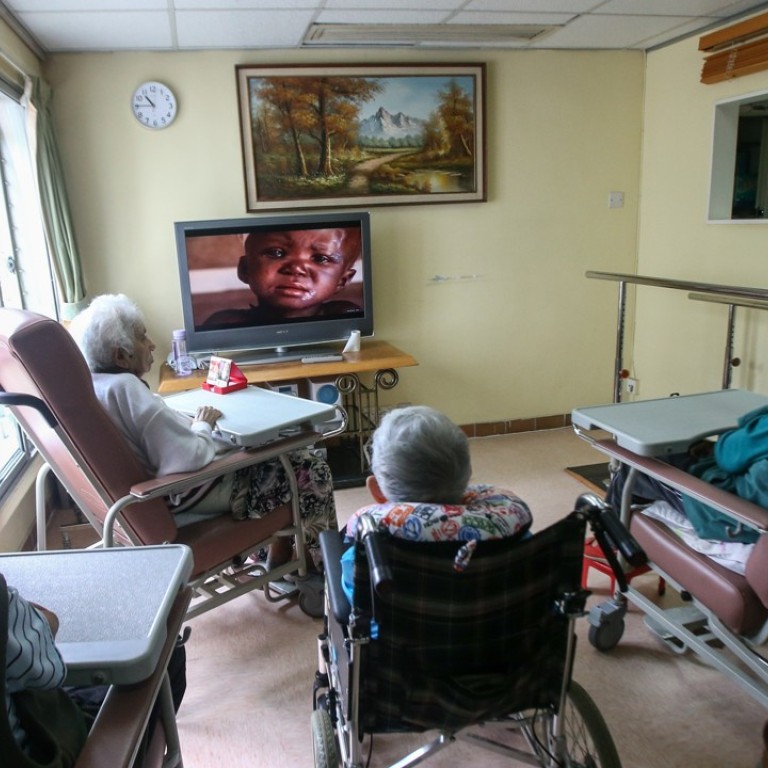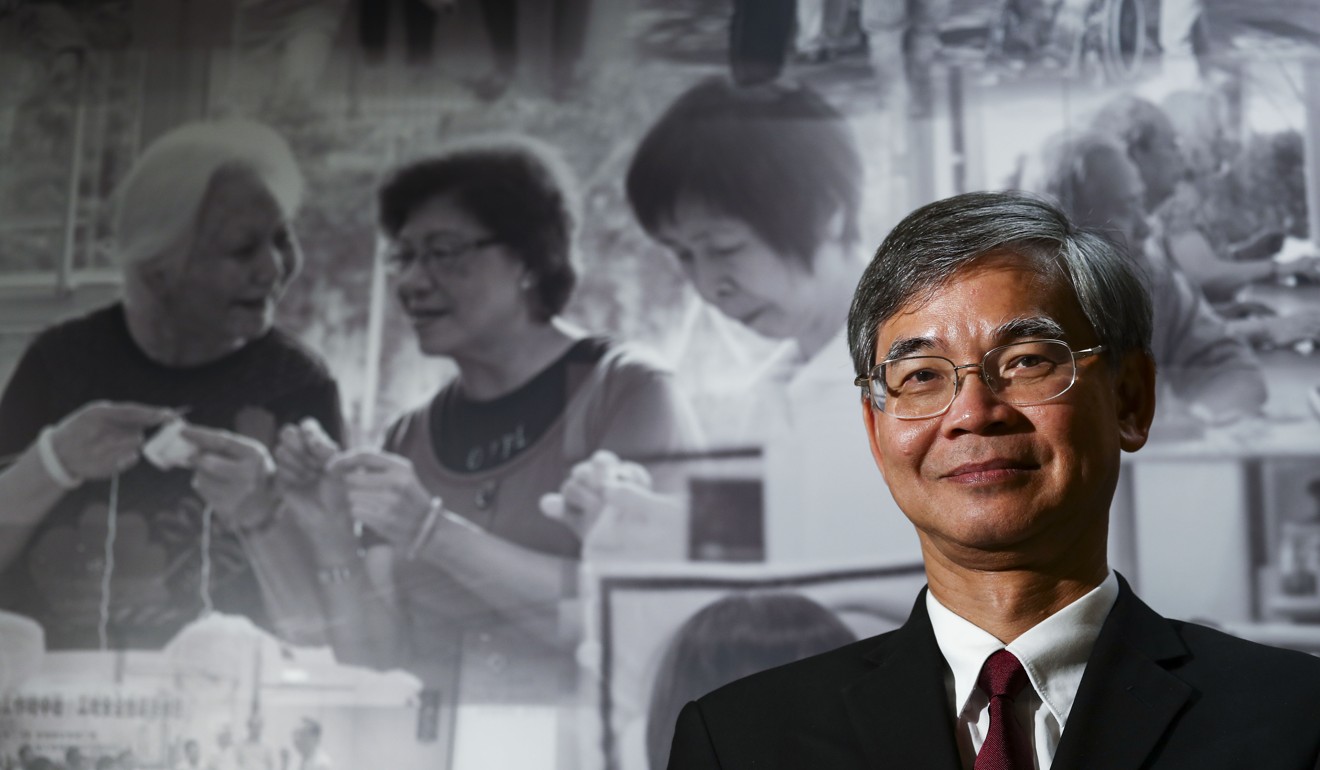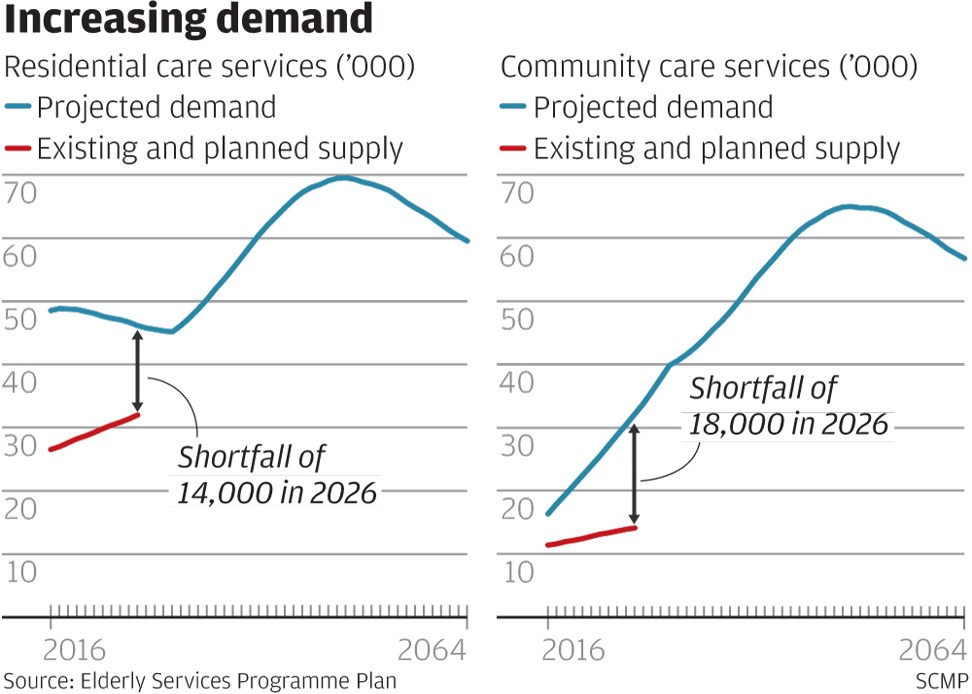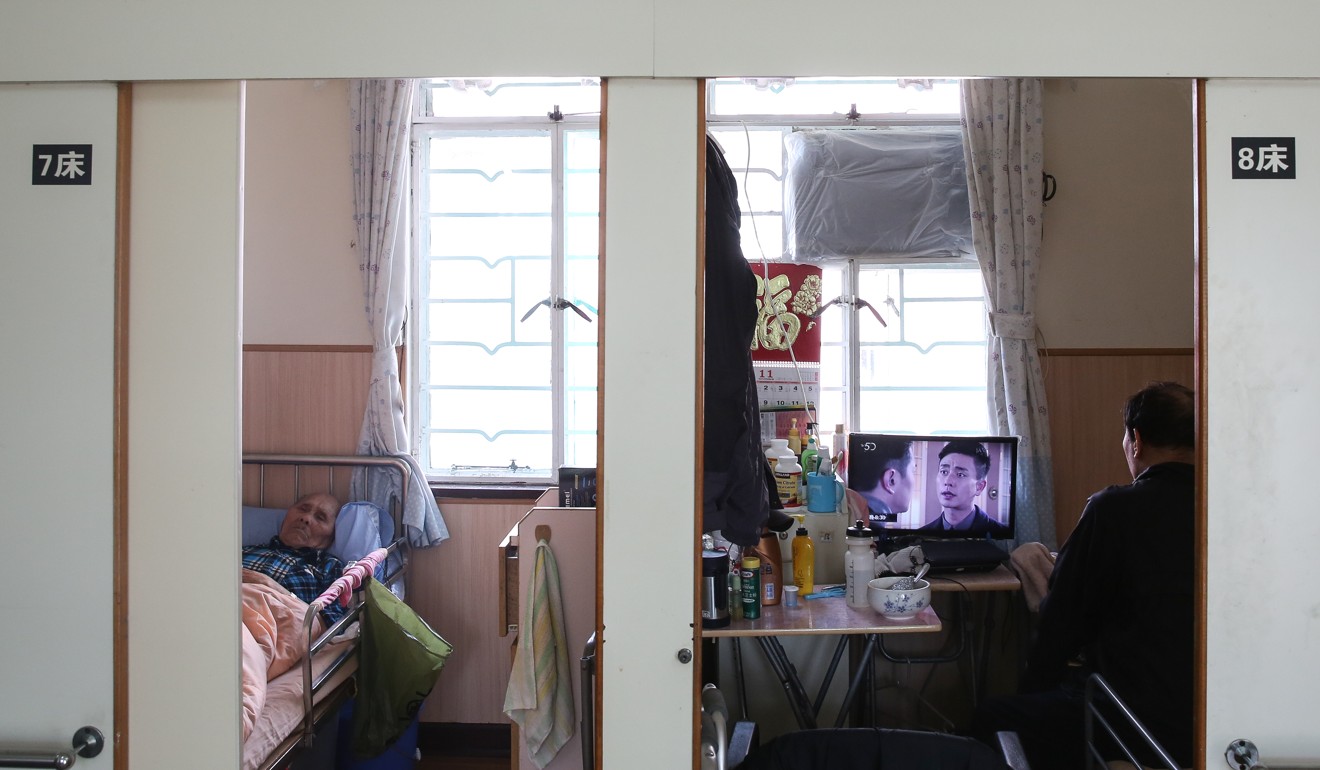
Hong Kong property developers may have to build nursing homes, care centres, labour chief says
Dr Law Chi-kwong says developers could be forced to build elderly residential care homes as part of their developments, after incentive scheme fails to deliver
Hong Kong developers could be forced to build nursing homes for the elderly and day care centres as part of their property projects under a proposal being considered by the government, the city’s labour and welfare chief has told the Post.
Dr Law Chi-kwong, a veteran social work specialist and an expert in urban renewal issues, also expected more developers to tap into the elderly market by, for example, offering residential care services.
His remarks came as the city’s incentive scheme under which developers can pay less land premium for building elderly residential care homes in their property developments had been snubbed over the past two decades.
Domestic helper subsidy ‘seriously considered’ for low-income elderly singles in Hong Kong

The scheme was devised as Hong Kong is struggling to locate lands to meet the severe shortage of subsidised residential homes places and community care services amid the fast-ageing population. In 2015, 5,881 senior residents died while they were on the waiting list for subsidised nursing care.
Hong Kong will need 600,000 domestic helpers in next 30 years amid demand for elderly care, labour chief says
“The land premium concession [has been in place] some 20 years ago. Nobody used it,” Law told the Post.
“They thought that [the home for the elderly] is not a welcome facility that may bring down the value of the properties.”
Law said his team was exploring an alternative proposal with the Development Bureau to make it mandatory for developers to build such facilities.

“One possibility in future is … we actually write down in the land lease and say you have to provide these kinds of facilities [in the land sale programme],” said Law.
“Whether it is a positive thing or negative thing it would be translated into the tender price of that piece of site.”
Law highlighted the imminent importance of the situation by citing that only some 25 residential homes had been built over the past 16 years.
“[It will need] 65 years down the road before we can build the 100 residential homes to clear the waiting list,” he said.
Law said such compulsory requirements would possibly be applied on bigger plot of land, namely
comprehensive development areas, which accommodate both residential and commercial developments.
Hong Kong government reviews services after recent elderly deaths
“The waiving of the land premium does not work … as long as we know that it is not workable, we will have to find an alternative,” he said, but stressed more discussion with the Development Bureau was needed to make the practice a reality.
The Elderly Services Programme Plan, the city’s first comprehensive plan on elderly care services unveiled earlier this year, has suggested an “estate-based approach” in service provision so that new residential developments would be “self-containing” where possible.
Despite the lukewarm response from developers in the past, Law said the bureau is looking for more partnership with the private sector, adding a company under New World Development was awarded a government contract to build a nursing home offering subsidised places.

Law said it was an “encouraging sign” to see the property giant bet on the elderly market by running the nursing home businesses and he expected more developers to follow suit.
The property conglomerate had acquired several companies which owned nursing homes, set up a training centre for foreign carers and even planned another in Guangzhou, Law said.
“I hope the private sector will have a longer horizon and perspective to look into [the elderly care issue],” he said, adding private companies were more creative than the government and had more financial resources to try out new things than non-governmental organisations.
How Hong Kong’s outdated care system is failing the elderly
Elderly Commission chairman Dr Lam Ching-choi welcomed the idea of requiring developers to build nursing homes and believed such facilities may not necessarily bring down the tender price.
But Dr Edward Yiu Chung-yim, a former lawmaker representing the surveying and planning sector, cast doubt over the plan as he said private developers could still drag out the building of facilities deemed unfavourable to them even it was stated in the lease.
He cited cases where some developers, which are required to provide open public space in their projects, often ended up restricting access to the area.
Rather than forcing private developers, Yiu said the administration should build the facilities on their own lands zoned for “Government, Institution or Community” use, which already permits building care homes.
A Real Estate Developers Association spokesman declined to comment on the land lease requirement without having further details.
Additional reporting by Naomi Ng

